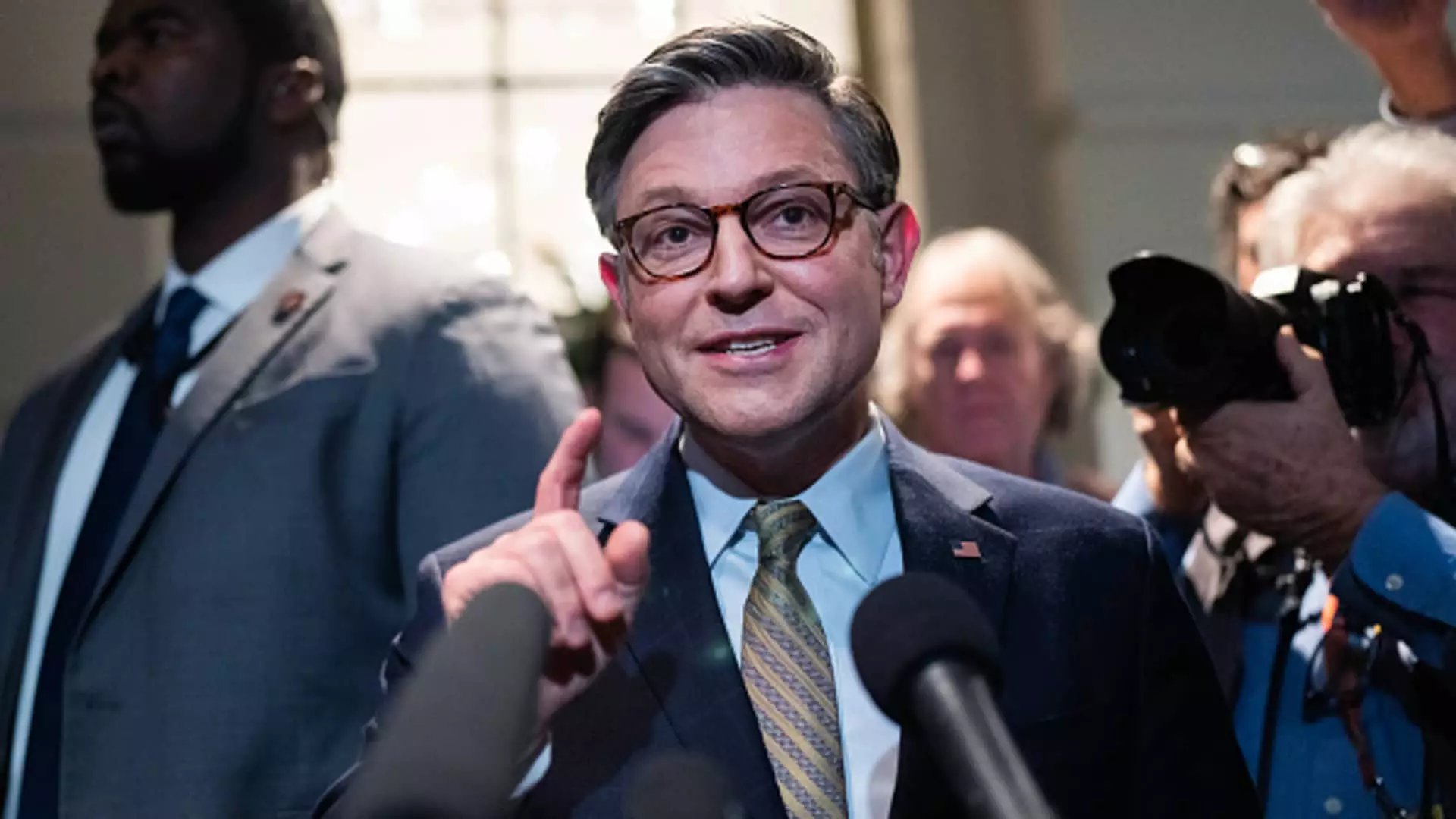In a critical move just ahead of a midnight deadline, the House of Representatives successfully passed a bipartisan federal spending bill aimed at keeping the government funded. This decision came on a Friday, mere hours before funding was set to lapse. As anxiety mounted in Washington regarding whether the Senate would manage to approve the bill before the cutoff, the urgency of the situation underscored the importance of bipartisan cooperation in governmental affairs. With current funding levels guaranteed for the next three months, the bill also allocates resources for disaster relief and agricultural support, crucial areas of need for many Americans.
The passage of this spending bill highlighted a significant amount of bipartisan support, with two-thirds of the members in favor. This collective action reflected a shared understanding among lawmakers that avoiding a government shutdown was imperative, especially with the holiday season approaching. Hundreds of thousands of federal employees rely on consistent funding for their livelihoods, and a shutdown could have resulted in precarious financial situations for many families just days before Christmas.
Despite the prevalent unity in the House, the Senate poses a different challenge. As a Democratic-controlled chamber, it theoretically stands a chance of passing the bill. However, Senate procedural rules often grant substantial power to individual senators, who can delay or obstruct decisions that would otherwise move swiftly through Congress. Should the Senate approve the bill without modifications, it is anticipated that outgoing President Joe Biden will promptly sign it, providing a necessary resolution amid political chaos.
The path to passing this bill was marked by turmoil. The failure of an initial funding plan was largely attributed to pushback from influential figures, including former President Donald Trump and Tesla CEO Elon Musk. Their criticisms prompted a scramble among Republicans, forcing leaders to find a new plan on short notice. Trump’s insistence that any deal to prevent a government shutdown required a two-year suspension of the U.S. debt limit set the stage for a contentious battle over fiscal policy. The debt ceiling controversy is a recurring topic of debate in Washington and often places the minority party in a powerful position to negotiate terms.
Despite Trump’s considerable influence and the urgency of the situation, a proposal that included both a basic funding extension and a debt limit increase met with strong opposition and was ultimately defeated. The notable dissent from 38 Republican members—alongside unanimous support from Democrats—translated into a stark reminder of the difficulties faced by party leaders in managing internal divisions.
The recent events encapsulate the ongoing challenges that lawmakers face, particularly in a landscape riddled with factionalism. The passage of the spending bill, albeit a temporary relief, serves as a reminder of the underlying tensions that exist within both parties. The significant backlash to proposals supported by party leadership indicates a fracturing party unity that incoming President Trump will likely need to navigate carefully.
As government officials enact measures to prevent a shutdown, the precarious balancing act of policymaking in Washington remains evident. Spending decisions are often tempered by the contentious dynamics within Congress, where hardline conservatives may resist any measures they perceive as compromising financial discipline. The implications of this spending bill stretch beyond mere government funding; they signal a broader struggle over fiscal policy that will undoubtedly play out in future legislative sessions.
Reflecting on the rapid developments in Congress, it is clear that while this bipartisan effort successfully averted a government shutdown for now, the complexities of fiscal management and political negotiations will persist. The necessity for collaboration across party lines is more pressing than ever, especially as lawmakers work towards solutions in a climate of heightened polarization. The passage of this bill may prove to be just the beginning of a much longer and complicated conversation surrounding government funding, fiscal responsibility, and the political machinations that define the ever-evolving landscape of Capitol Hill. As the government gears up for the next chapter, vigilance and unity will be key in navigating the challenges ahead.


Leave a Reply